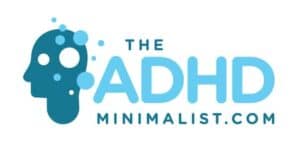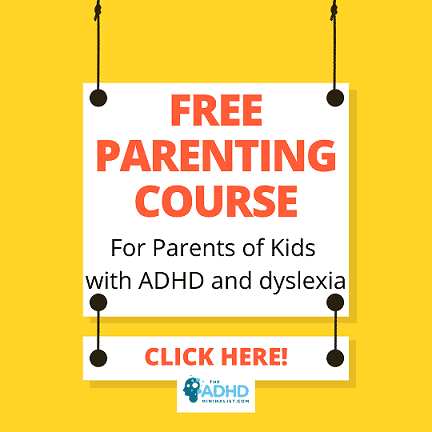
My husband and I are raising three kids Lage (13), Maria (10), and (Frida) (5). I am originally from the USA, but I married a Swede and moved across the ocean to Sweden almost 16 years ago.
My oldest two children have been diagnosed with ADHD (Attention Deficit Hyperactivity Disorder). My son is hyper, and my daughter has ADHD inattentive or ADD), and they both have dyslexia.
I have some rather obvious signs of ADHD myself as well as a milder form of dyslexia.
In my desperation to help my children during a tough year, I started reading as many books on ADHD as I could get my hands on. Everything from ADHD and diet to ADHD and discipline.
After reading several books on disciplinary techniques that did not work. Some of which caused extreme outbursts and panic from my children.
I stumbled onto several books that asked me to change my own patterns of behavior, not my children’s behavior.
As anyone who has tried to change someone else will tell you, it is nearly impossible.
The only person we can be sure of changing is ourselves. Out of all the books I read, the book ‘Scattered Minds’ by Gabor Mate MD was one of my favorites.
Dr. Mate has a heart to see those who struggle with ADHD restored and understood.
He asks us, parents, to examine our own problems, our past, our relationship with our spouse, and our relationships with our children. Relationships are essential for restoration.
We need to heal the child-parent bond that is often broken in the families of people living with ADHD. The healing of this bond starts with the parent.

Decrease stress
The unconscious stresses of the parents can be the underlying causes of ADHD.
Parents need to provide a home free of stress for babies in the womb, as well as infants and young children.
That is not always possible despite the parent’s best efforts.
Sometimes extreme stresses are imposed on the family. Stress can be internal, like problems in the parent’s relationship, or external, due to outside forces such as financial crises.
Pregnant women under high stress have unbalanced hormone levels.
The mother’s cortisol levels are often too high, which directly affects the babies developing nervous system both in and outside the womb.
When I was in the last months of my second pregnancy, my husband severely burnt his hand.
All his skin peeled off, and the doctors didn’t know if he would regain its full use.
He was sent to the hospital for several days while I worried and cared for our two-year-old son.
He came home three days later but had to be driven to the hospital every few days for checkups and was under strict orders to rest when he was recuperating.
While trying to find friends and family to help with what I could not manage alone, I began stressing out!
I ended up in the hospital myself. I was diagnosed with preeclampsia which the doctor could not explain. In order to have preeclampsia during my second pregnancy, I should have had it during my first pregnancy.
It took me longer to recuperate after this pregnancy. I was exhausted and spent all my extra moments in bed instead of connecting with my baby daughter.
My daughter was later diagnosed with ADHD. That was not something I could control, nor do I blame myself or my husband for the circumstances surrounding her birth. It simply was.
‘’Summarizing a number of British studies, Dale F. Hay a researcher at the University of Cambridge suggests, ‘That the experience of the mother’s depression in the first months of life may disrupt naturally occurring social processes that entrain and regulate the infants developing capacities for attention.’
Just how important a close moment to moment connection between mother and infant can be was illustrated by a cleverly designed study known as The Double TV Experiment in which infants and mothers interacted via a closed circuit television system.
In separate rooms infant and mother observed each other and on live feed communicated by means of the universal infant mother language Gestures, sounds, smiles, facial expressions.
The infants were happy during this phase of the experiment. ‘When the infants were unknowingly replayed the happy responses from the mother recorded from the prior minute, writes the UCLA child physiatrist Danile J. Siegel. ‘They still became profoundly distressed as infants do in the classic flat face experiments in which mothers in person gave no facial emotional response to their infants bid for attunement.’
Why were the infant’s distressed despite the sight of their mothers happy and friendly faces?
Because Happy and Friendly are not enough. What they needed were signals that the mothers were aligned with, responsive to, and participating in their mental states from moment to moment.
All that was lacking in the instant video replay. During which infants saw their mothers face unresponsive to the messages they, the infants, were sending out.
This sharing of emotional spaces is called attunement.
Emotional stress on the mother interferes with infant brain development because it tends to interfere with the attunement contact.
Attunement is necessary for normal development of the brain pathways and neurochemical aparatas of attention and emotional self regulation.
It is a finely calibrated process Requiring that the parent remain herself in a non stressed, non anxious, undepressed state of mind.’’
Knowing that it’s better for the baby to stay free from stress can be helpful. If you know something is a problem, you can do your best to change it.
Babies need to spend time looking into mommy or daddy’s eyes and connecting. Babies are brilliant; they notice if the parent playing and connecting with them is distracted or faking a smile.
Knowing there is a problem does not always mean you can fix it, but it’s always better to be informed, so you have the best possible chance of success.
If you were under stress during your child’s first years, it’s still not too late to attune and attach. You can try using something Jennifer Kolari calls mirroring. Check out the youtube links below.
https://www.youtube.com/watch?v=gAsC43xongc
Focus on the future
Consider what your actions as a parent have on the future of your relationship with your child. What are your long-term parenting goals?
More often than not, forcing the child to behave will meet the short-term goals of doing homework, keeping his room clean, eating meals with the family, etc.
The problem is getting an ADHD child to meet your priorities often means fighting, frustration, threats, punishments, and a break in the relationship between the parent and the child.
If a healing of the parent-child attachment relationship is to occur, The parent needs to relax their short-term goals and focus on the long-term goal of building a relationship with the child.
Dr. Gabor Maté attributes genetics together with a break in the parent-child relationship or lack of attunement to be the cause of ADHD.
If you can establish an attachment relationship in which your child feels safe, loved, and enjoyed for who he is, he will automatically be more inclined to please you.
Because the child values his attunement to the parent, it will be easier for an attuned/attached child to do what the parent asks of him without feeling threatened.
If a break in the parent-child relationship is part of the cause of ADHD, then there is hope that by creating optimal circumstances for attachment and attunement in the family, healing can take place.
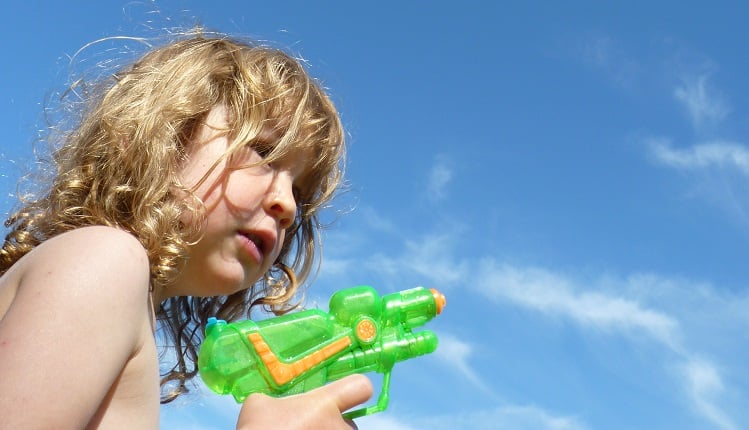
A stalemate occurs when I am certain that I ‘know’ why others act the way they do
As soon as we assume ‘We Know’ what our child or spouse thinks or feels, we cease to be curious, and we adjust our response to suit our assumptions.
That one does not know his or her spouse or his or her child was what David Freeman (A Family therapist) encouraged his audience to remember from one of his lectures. Check out the link below to listen to some of his most popular lectures on raising children and emotional pain.
http://www.david-freeman.org/audio-lectures.html
This faulty belief is sometimes referred to by psychologists as intentional thinking.
For example, If I assume that my ADHD child is nagging me to intentionally irritate me, I will respond with frustration, irritation, and anger.
If I decide not to make assumptions, I may conclude that my child, who has been at school all day, has a deep need to be seen by me and to know that I want to spend time with her. If I respond with irritation, it may just make matters worse.
This negative response will fuel the growing fear in the child that her parents do not want to be with her. This will result in more nagging.
Parents need to learn how to decipher their child’s code language and code behaviors.
Often children with ADHD can not find words to explain how they feel and may not even know why they react strongly to seemingly benign stimuli.
Dr. Gabor Maté reminds us to be curious about why your child acts the way they do.
When you genuinely try to understand your child and quit making assumptions, you will be able to parent from an increasingly positive outlook on your child’s behavior.
Neither should we assume that we know the innermost thoughts and motivations of our spouse.
We may think that our spouse does this or that to purposely unnerve us, but in reality, this is far from the truth.
Maybe your husband throws his clothes on the floor because his closet is overflowing, and he needs help to discard old clothes and reorganize.
If you assume that he is deliberately trying to frustrate you, you may react with anger when you find a shirt crumpled on your clean floor.
If you assume that you do not know why he throws his clothes on the floor, you may nicely explain that you noticed his shirt was on the floor.
You could ask what was hindering him from putting it where it belongs, and see if there is any way you can help the root problem, whatever that turns out to be (could be lack of storage space, lack of hamper in the bathroom, etc. I am not suggesting the wife pick up all her husbands clothes off the floor).
Often our assumptions shape our responses. Be open to giving family and friends the benefit of the doubt and stay curious about why those around you do what they do.

Are you operating out of counterwill?
Understanding counterwill in yourself and in your child is key.
Several years ago, I noticed myself saying an automatic no to almost all of my children’s requests.
I would usually regret my automated response a few minutes later when I realized that what they were asking of me was a perfectly ok request.
I researched why I was responding this way and stumbled onto the concept of counterwill.
Otto Rank, a psychoanalyst, initially coined the term counterwill roughly one hundred years ago. Still, the modern understanding of counterwill was developed by Gordon Neufeld while he studied attachment and development.
Counterwill is an automatic NO response often seen in the toddler phase of life.
The small child says no to everything because in refusing the parents’ suggestions, he/she can learn to know and understand their own likes and dislikes.
Counterwill is not the same as will.
Many parents say their ADHD child is strong-willed, but this so-called will is a close kin to Obsessive-Compulsive disorder, where the child or adult clings to an obsession until they receive what they want.
Obsessing over something because you think you need what your friend or neighbor just bought is not the same as deciding for yourself that you actually need or want something.
The obsessive response in this example is a reaction, not a chosen action.
‘’The child’s oppositionality is not an expression of will. What it denotes is the absence of will. Which…’’ ‘’…Only allows a person to react, but not to act from a free conscience process of decision making.’’ Dr. Gabor Maté
Counterwill can be passive or active. The active form of counterwill may be a verbal resistance to the suggestions of a parent, spouse, or child.
The passive form is often seen in giving someone ‘The silent treatment’ or slowing down and dragging your feet just when those around you need you to hurry up.
The root problem is that the individual does not know what he/she likes, dislikes, or prefers. He does not yet know who he is.
Just like the toddler, adults who do not know their own preferences may use an automatic no as a way of self-defense.
It’s as if they feel that their own sense of self is so fragile that going along with another person’s ideas or preferences might cause their own ‘Self’ to shatter.
Often adults who default to the automatic NO were not allowed to discover their own preferences as a toddler or were not granted any autonomy as an adolescent.
The preferences of others were imposed on them, and having something imposed on you causes resentment.
This resentment and fear of being controlled cause an automatic NO response even when no one tries to impose on or control the individual.
A friend, spouse, or child may just be making a suggestion or asking permission only to be met by an automatic NO!
I am not suggesting that parents should be completely permissive and allow a child to prefer to harm herself, to inconvenience others, or use offensive language, etc.
The home should be a safe place for the child to learn who she is, what she likes, and dislikes.
It should also be an environment where one is allowed to make some mistakes and some bad decisions (within reason) in the safety of the home when the consequences of the child’s mistakes are still minimal and can be learned from.
Counterwill in an adult can make life exceedingly complicated. It can wreck relationships, frustrate teachers, and get you fired from jobs.
To overcome counterwill you will need to do some work on yourself. You may need to discover what you actually like and dislike.
Remember, counterwill is something that happens to you, not a response that is thought through and decided on. Learn to recognize when you automatically say no and permit yourself to change your response if you say no without thinking.
I used to think that if I said no to my kids that I had to stick to my guns and mean NO at all costs!
The only way for me to get over my own counterwill was to discard this faulty thinking and let my kids know that sometimes parents can change their minds or their perspective on a situation on request.
I also tried to implement a new automatic response to requests. The ‘’Let me think about that for a minute’’ automated response.
That gave me a chance to decide if I wanted to go skiing on Tuesday when my husband asked or decide if what my child wanted was good for them.
This new way of buying myself time to think saved me from many arguments with my children, who tended to argue with me when they sensed that I was not giving fair consideration to their requests.

Discard parental guilt
Why is it that we can not tolerate the feeling of guilt? We all have things we feel guilty about and some things we have definitely done wrong.
Why is it that in trying to avoid guilt, or in trying to punish ourselves because we feel guilty, we often do things we would not otherwise do?
Why do guilt and shame make us want to blame others? Why do we feel guilty for things outside of our control?
Yes, some of the problems our children face in life are the direct result of our actions as parents, but many of our parental mistakes are unconscious ones.
The way we parent is partially the result of the parenting we received when we were children. It’s tough to give something that you have not received yourself.
To be better parents, we need to examine our own upbringing and find answers to why we do what we do.
When we know why we behave in a particular way towards our children, it will be easier to change our behavior. If your parents are still alive, you may want to ask some questions about your childhood. If not, try asking siblings or close family friends.
Most of us parents want the best for our kids. Forgive yourself for your parenting mistakes and strive to make positive changes going forward.
You’re not going to make any headway if you keep hitting yourself over the head for past problems which you can not change.
If your relationship with your kids has been damaged by former actions, ask them for forgiveness and strive to build a better relationship with them.
Strive to build a relationship so strong that your children will want to have a close relationship with you in their adult lives.
Why is it that we automatically assume that if a child is having problems like hyperactivity or even bigger problems later in life after they have left the parent’s home, that it is the parent’s fault?
Why do we feel the need to blame when there is a problem?
Some of the problems may be the parent’s fault, but the parents are often parenting the best they know how.
Their own parents did the best they knew how. We subconsciously pass on worries, fears, and problems to our children.
It’s the wise person who takes the time to examine himself and his past and try to receive healing so he doesn’t continue to pass on his negative behaviors to his offspring.
In his book Scattered minds, Dr. Gabor Maté points out that in order to cast blame, we would have to go all the way back to Adam and Eve, who ate the forbidden fruit in the garden of Eden.
Since the first baby was born in our world, there has been no perfect parenting, only perfect intentions.

Are you individuated? Poorly individuated adults can not foster individuation in children.
Often it’s our inability to tolerate the child’s behavior that causes stress, fear, anger, and embarrassment in the parent. Not the child’s behavior itself.
The child is not responsible for the adult’s reaction or the triggers adult has acquired, which causes them to feel fear, anger, or embarrassment.
The child is responsible for their behavior, not the parents’ response to the child’s behavior. Paraphrased from Dr. Gabor Maté’s book scattered minds.
Often we parents overreact to relatively small infractions. Perhaps we did not sleep well, had a bad day at work, or had stress in our relationship with our spouse.
Many adults assume that their child makes them feel negative emotions when their child exhibits unacceptable behavior.
When we were babies or tiny children, the behavior of the adults in our lives did cause us to feel positive or negative emotions.
Babies are totally dependent on the care of their parents or guardians. If the parent chooses not to feed the child, that is the direct cause of the child’s anger because his basic needs are not met.
We are meant to grow out of this phase. Not get stuck in it.
When the emotional or physical needs of a child are continually not met by the parent, the child may continue to assume that others cause his/her negative emotions and negative responses years into adulthood.
That leads to blaming others for his/her own feelings and actions or being overly dependent on another (Spouse, child, or friend) for his own emotional health.
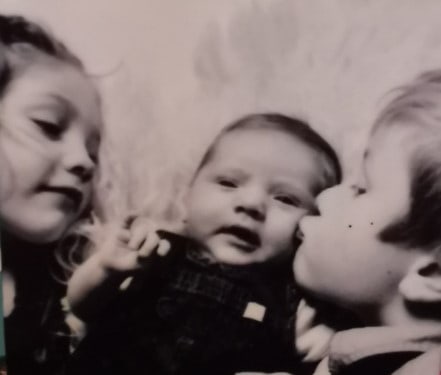
‘’How one person gazes at another can alter the others electrical brain patterns as registered by EEGs and may also cause psychological changes in the body. The newborn is highly susceptible to such influences with a direct effect on the maturation of brain structures.’’ Dr. Gabor Maté
Dr. Gabor Maté explained in his book that people who are not adequately individuated can not function emotionally on their own.
Often couples in which both partners are poorly individuated are thrown into crisis as soon as their first child is born. That upsets their emotional balance.
When both partners in a relationship need the other to be in tune with them emotionally in order to function, the baby, who naturally requires most of the mothers nurturing, attention, and attunement, causes her to shift focus from her husband to her newborn child.
That leaves the husband emotionally alone. If he is not properly individuated, he may become depressed or resentful towards his wife or child.
‘’From Early infancy it appears that our ability to regulate emotional states depends upon the experience of feeling that a significant person in our life is simultaneously experiencing a similar state of mind.’’ Daniel J. Siegel M.D.
If we never take responsibility for ourselves and our own responses and feelings, we can not receive healing from the problems caused by our upbringing, and we will not be able to help our children heal.
Try taking the time to notice your reactions to others, and ask yourself why you respond the way you do.
‘’A giant strive forward is made when parents recognize the need to monitor their own emotional states and the level of tension in the entire household. If children swim in their parents unconscious it is good to make sure that the water stays clear or at least as clear as possible. ‘’Dr. Gabor Maté

Do not parent out of fear of others
I have at times noticed my desire to control my child’s behavior to save myself from embarrassment.
The stronger I felt that my children should behave a certain way, the more they resisted.
I have never been able to get my children to sit like small angles all in a row and eat the evening meal with perfect manors. I am lucky if we can get everyone to the table at all.
When one of my children began having panic attacks and talking about self-destructive behaviors suddenly, table manners seemed the least of our concerns.
What I realized when we were going through a tough year with our children was that I could not control my children’s behavior.
This idea was completely contrary to the way I was raised. My brother and I were forced into good behavior. I do not feel that I had a bad childhood, but I do remember feeling very resentful on several occasions when the punishment didn’t fit the crime.
Many times we were not given any opportunity for choice.
When we were small, we were just dragged along to meetings and activities that were important to my parents, but at which we had to sit still and be quiet for hours.
When we were older, my parents decided we would go to specific activities.
Even when I felt this activity was causing me anxiety and I asked to switch to a similar activity that my friends attended, the answer was no.
I realize now that I was not very good at formulating why I wanted to do or not do certain things.
I think that if I could have explained my emotions and motivated why I wanted to do something, they may have been more understanding.
Unfortunately, I could never quite put my finger on why a situation gave me a negative reaction and a sick feeling in the pit of my stomach.
”In retrospect I probably should have said that the activity was too large and impersonal, the games were not fun because I didn’t know anyone, I never learned anything during the half hour of teaching because it was too basic, and how the other kids were behaving made me uncomfortable.
If only all preteens could explain how they feel.” Annie Eklöv

Well-meaning friends and close family members tried to tell me to ‘Take control of the situation!’, to ‘Take charge!’, they reminded me repeatedly, ‘You are the mother! Don’t let your child control you!’
I swallowed all their advice with a grain of salt because I did not yet know how to explain why their approach would not work with my hypersensitive children.
My anxiety over how my kids might behave at a particular event seemed to feed my children’s irritation, fear, and anxiety.
The more anxious and stressed I became, the more agitated, fidgety, and obstinate my children would become. We fed each other’s fears.
Often this drove one of my children to explode, and my response to their explosion was one of anger.
I would grab my uncooperative child and march him or her outside so the meeting could proceed without all our racket, all the while seething inside and barely able to control my anger.
If I was a parent who believed in spanking I am sure I would have spanked. My children were thankfully spared any corporal punishment in the wake of my anger.
I feel sorry for any child who is spanked while his parents are seized by rage.

What I later realized, while dealing with my oldest, who was often gripped by panic attacks, was that if I could not regulate myself and stay calm despite my child’s many problems…
- His demand for my full attention
- His talking all the time
- His pacing back and forth
- His obvious stress
- His tension
- His explosions
- His yelling
- His Panic
Then I escalated his panic and often caused a worse explosion.
”I needed to become an empathetic robot, responding to him with empathetic phrases and words while looking him in the eyes, but not taking his actions or words personally.”
When I could keep this up for the duration of his panic (between one and three hours) It would help him to calm down sooner.
If I got mad and started yelling back, it would escalate everything!
Usually this ended in him stomping off and disappearing into the forest outside our house, yelling over his shoulder that he planned to jump in the nearby river because I did not care if he drowned!
This caused further upheaval as my husband, and I had to run around our 4 acres and the neighboring properties looking for him because we were not sure if he would try to harm himself or not!

One episode that happened in a close family member’s car caused a strong reaction from my relatives. (Extreme episodes rarely happened in front of others because he did not feel safe enough to express how he truly felt outside our family circle.)
They had the good sense to bite their tongues while he was carrying on, but they let me know what they thought of my parenting techniques afterward.
My son was upset because I was going to leave him with his grandparents the next day.
I needed to do some errands without him. He wanted to be in my presence or my husband every minute of every day. It was a miracle we got him to school at all.
Telling him, we were not able to be with him was always a bit of a challenge.
If we told him too soon, he would often worry excessively about our imminent departure. If we told him at the last minute, he would be angry because we didn’t tell him sooner.
This particular day I decided to tell him late in the evening on our way home from a fun event.
I knew that if I had told him earlier, it would tarnish our whole day, so I kept silent until we crawled into the back seat of the car.
After I explained what I needed to do the next day and that he would be with his grandparents, he started to get stressed.
His voice escalated as he argued, trying to reason with me, and explained why I could not possibly do anything without him—all the while talking in a stressed whiny voice getting louder every minute.
I stayed calm and explained that I needed to have some time to myself, partly for running errands and partially to meet a friend.
I acknowledged that I understood how he felt about it, but I needed some time by myself. If I was going to continue to meet his needs, I needed to recharge myself.
I did not get mad. I did not yell. I made sure he knew that I wanted to be with him and that we could do something together the next day.
I did not back down or ever let him feel that there was even a chance I would change my mind. I gently answered the same questions over and over again during the next 45 minutes.
This was not the worst episode he had ever had, and I felt that if I kept calm, it would eventually fizzle out. My intuition was correct, and eventually, he calmed down and, with sadness, accepted the fact that I would be gone the next day.
My two observers in the front seat did not understand this approach. They thought I should be a strong mother and take control of my son and the situation!
I understand how they felt and that the whole episode in the car made them feel uncomfortable, but their reactions made me do some deeper thinking, not change my parenting approach.
I began to wonder why it is that everyone seems to think that a good parent should control the child? Should one control a child? Can someone truly control another person?
I knew that despite my best efforts to convince my children to do what I wanted, it often did not work. The promise of rewards or punishments, if they did not comply, were often met with equal obstinance.
You can spank or beat a child into submission, but children treated harshly only obey out of fear.
I could not always make my children do what I wanted, and I concluded that I do not believe parents should try to completely control children.
Often giving my children choices defuses much of their obstinance. If they have to wear a dress to the Christmas party let them pick which one.

What the parent can control
- him or herself
- often the parent can control where the child throws a fit.
If they begin yelling in the middle of a meeting or at a restaurant, take the child outside or to your car and wait with him there until he calms down.
In the example of my son and me in the car.
I was in control because
- I was incontrol of myself. I was not getting angry and escalating the situation.
- I was incontrol of my schedule. I was not allowing his fit to change my plans.
Parents who allow their children to walk all over them and who constantly give in and change their plans to suit their child, are hindering their child from learning and growing just as much as the parent who is too authoritarian and demands the child’s submission at all cost. Annie Eklöv
It seems we forget there is a middle ground.
I feel that often parents feel the need to create a picture-perfect facade like a fake storefront that boasts to the world that everything is better than it is to those around them.
When I asked myself why my son was making such a fuss about being left with his grandparents, I could not deny the fact that he was genuinely scared, worried, and afraid of being away from me.
He was probably not sure if our relationship would survive a separation.
He must have felt that something was wrong in his attachment relationship with us because he had been desperately clinging to us for over a year.
Our response to this was to spend more purposeful time with him, but we had not yet dissolved the root problem, which was his fear of us not wanting to have a relationship with him.
Most of this deeply rooted problem was our fault as parents, not his fault as a child. He was acting like any child would act who didn’t get his basic attachment needs met.
When your child realizes that you are in control of you and can keep calm even amid the child’s most problematic behavior, and when the child learns that their fits and tantrums can not control you, the parent.
They will often feel secure in the relationship and quit making so much fuss because they realize the tantrums do not get them what they want.
Dr. Gabor Maté’s book scattered minds helped me find words for some parenting strategies I naturally started using with my hypersensitive ADHD children.
His book explains that it’s often not the child’s behavior that is the main problem in a parent-child conflict, but the parent’s inability to tolerate the child’s behavior.
I have often found that if I take the child to a safe place to have a tantrum and I have patience or ‘Ice in my belly’ as the Swedes say and wait for my child’s behavior to blow over, then they learn that their behavior doesn’t reap the rewards they were hoping for.
Children, just like adults, need to blow off steam from time to time. Often it’s best not to impose extra consequences in these situations.
Let them learn from not getting what they want.
When parents impose consequences that have nothing to do with the child’s infraction, children get incredibly offended and focus on their anger and frustration on the parent. They can not concentrate on learning from the natural consequences of their behavior and mistakes.
If we as parents could get over our fear of being seen as less than perfect, I think our need to control would lessen.
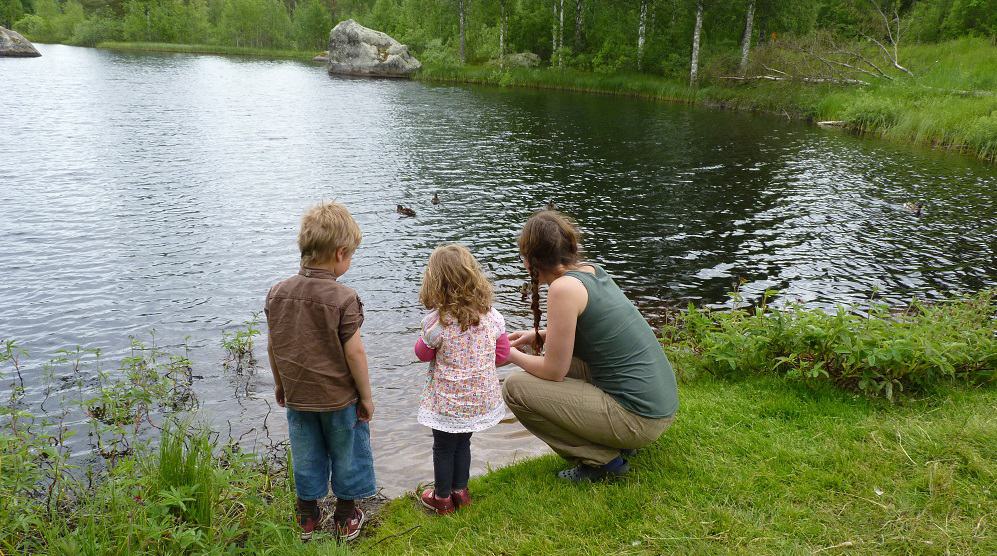
Self psychology
Heinz Kohut coined the phrase Self Psychology back in the sixties, but I am referring to the idea of doing a self-check before taking on complex parenting tasks.
Jennifer Kolori touches on this in one of her YouTube videos (I’ll link to that below).
We could all benefit from the practice of running a self-diagnostic before engaging in a fight with our kids over trivial issues.
Say you come home from work after a tough day. You must immediately start making supper and help your kids with homework. At bedtime, you usually bathe your kids.
Tonight your kids seem as exhausted as you feel, and they are begging to skip the bath and read an extra bedtime book.
Before starting your automated routine saying that we always take a bath and we will tonight too.
Take a minute and do a self-check.
- Do you have the energy to get your uncooperative kids in the bathtub?
- Can you do it without yelling, threatening or getting mad at your kids?
- What will happen if they skip one bath night?
- Is there anything wrong with their request to trade bathtime for reading time?
When you ask yourself these questions, you find that you are too tired to do bathtime nicely, your kids are not dirty, and you don’t mind reading a book; instead, give everyone a break from your routine and cut yourself some slack!
Parenting doesn’t need to be so rigid. Changing your mind is ok, and your kids will now have a good memory of reading extra books with you instead of a bad memory of fighting over bathtime.
https://www.youtube.com/watch?v=q28IrZq14hk
Watch your tone of voice
Often it’s not the fact that parents say no to a request from a child, but it’s the frustration and irritation in the tone of their voice that the child reacts to.
The tone of voice is often the only thing the child pays attention to.
Even if you say something nice to your child in an irritating tone of voice, they will not interpret what you say in a positive light.

Take responsibility for the emotional climate in your home
Parents need to control the emotional climate in the home.
Children with ADHD often seem to control the emotions of their parents and siblings.
Parents who feel that their child is controlling their emotions need to work on their individuation.
Children who see that as soon as they ‘lose it’ their parents also ‘lose it’ are highly insecure.
It’s terrifying to feel that there is no one to turn to when you are emotionally out of sorts.
Children need to know that the parent is ok emotionally even if the child is not.
Parents who can control their own emotions even when their child has an emotional breakdown can take back control of the emotional climate in the home.

Say no to extra activities
Parents may need to slow down their pace of life and eliminate some of the many activities they are involved in, in order to have more time to spend with their attention-starved child.
For children to believe their parents want to spend time with them, the parents need to invite the child to spend time together when the child is not begging for attention.
This idea was new to me when I read Scattered Minds. My husband and I tried this with our son, and it definitely helped.
Whenever the child gets what he wants by begging and whining, he believes that the parent only wants to spend time with him to stop his annoying behavior.
The economic policy institute in the USA has seen that the work year for the average American citizen is 158 hours longer than in 1969. That means that approximately an extra month has been added to a full-time job.
Dr. Gabor Maté reminds us that when fathers are spending longer hours at work and when many families need financial contributions from the mother, this negatively affects the health and development of children in today’s society.
If you are going to have time to give your child your undivided attention, you can’t continually be hopping from one activity to the next, constantly distracted by thoughts of unfinished projects.
To promote an optimal environment for healing in your home, you may need to sacrifice some extracurricular activities.
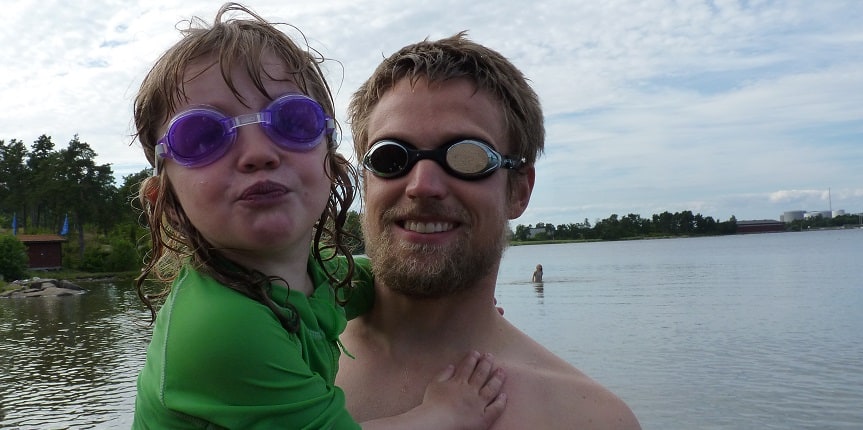
Self parenting
Often parents of ADHD children have ADHD themselves.
To understand ADHD better, we need to look at people’s lives, not just genetics. Self-parenting is a phrase Dr. Gabor Maté used in his book Scattered minds.
He refers to self-parenting as a way for adults to promote healing in themselves.
He explained this far better than I could in his book.
If you feel you could benefit from healing due to problems in your attachment relationships with your primary caregivers or from your ADHD/ADD traits, please read his book, and seek a counselor or psychologist near you who can aid you in your healing process.
If money is an issue, churches often offer counseling for free.
Conclusion
I suspect I could fall into one of the ADHD categories myself. The book Scattered Minds helped me understand my own reactions to my children’s behaviors. Things are not always as they seem.
This article is inspired by Gabor Mate MD’s book Scattered Minds, The origins, and Healing of Attention Deficit Disorder. (He refers to all types of ADHD as ADD)
This book gave me words for some parenting techniques I naturally began using with my hypersensitive children.
It also gave me new ideas and hope that my child’s diagnosis, genetics, and relational connections were not set in stone.
Dr. Mate says that ‘’Environment and heredity may mutually effect neurophysiology of children.’’
If part of the problem of ADHD/ADD comes from the environment in which the child lives, then there is hope that making changes in the environment will lessen the effects of ADHD on the child.
Dr. Mate does a beautiful job of explaining and supporting his hypothesis without casting blame on us parents.
‘’Neuroscience has established that the human brain is not programmed by biological heredity alone that it’s circuits are shaped by what happens after the infant enters the world and even while it is in the uterus.
The emotional states of the parents and how they live their lives have a major impact on the formation of their children’s brains.
Though parents can often not know or control such subtle unconscious influences.
The good news is that major changes in the circuits of the brain can occur in the child and even in the adult if the conditions necessary for positive development are created.’’ Dr. Gabor Maté Scattered Minds
I encourage you to read my post about Limbic bonding.
Limbic Bonding is an easy way for parents to connect with their kids. It just takes time and intentionality. If you feel like you have blown it as a parent Limbic bonding gives you a second chance!
https://theadhdminimalist.com/how-limbic-bonding-transforms-adhd-children/
If you are thinking about giving your ADHD child Medication READ THIS FIRST! https://theadhdminimalist.com/how-three-different-adhd-medications-affected-my-son/
For more information and other book tips checkout Our Favourite resources page https://theadhdminimalist.com/our-favourite-resources/
Copyright Annie Eklöv
